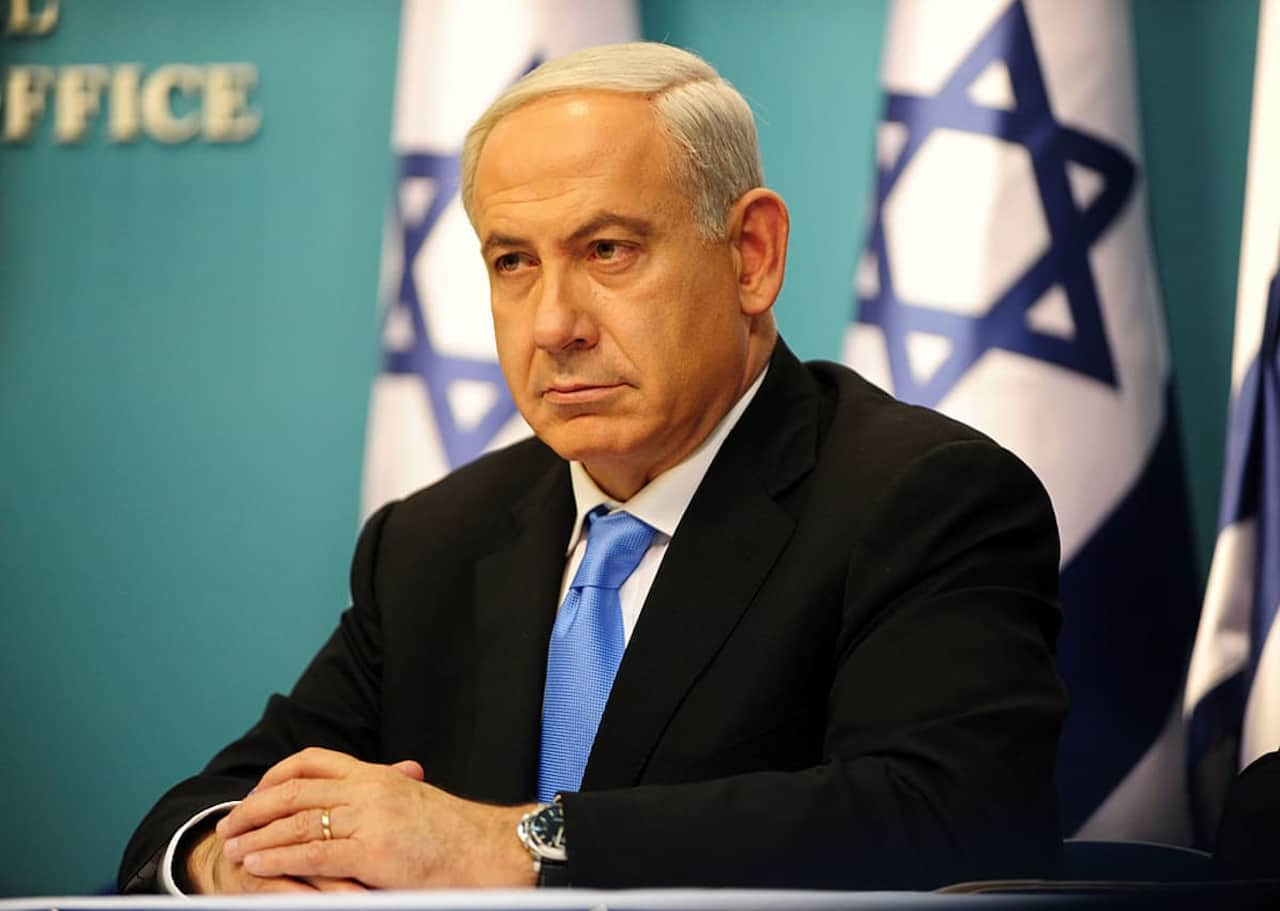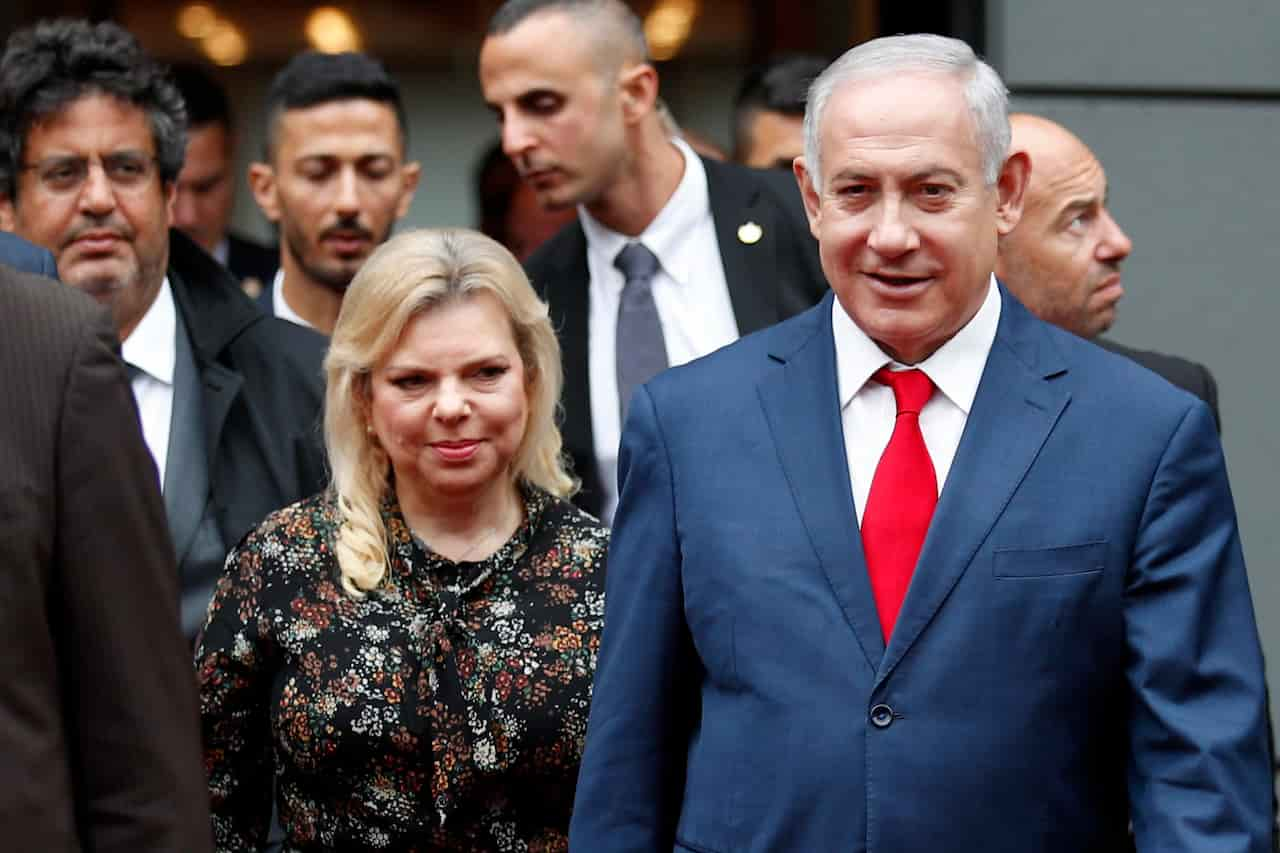Benjamin Netanyahu Net Worth 2024- Career, Wife, Age, Height, and …
Benjamin “Bibi” Netanyahu is one of modern Israeli politics’s most influential and controversial figures. As Israel’s longest-serving prime minister, Netanyahu has left an indelible mark on the country’s domestic and foreign policy over the past three decades.
Known for his hawkish stance on security issues and free-market economic policies, Netanyahu has been a dominant force in shaping Israel’s trajectory in the 21st century. This blog post will explore Netanyahu’s life, political career, significant achievements, and the controversies defining his legacy as a polarizing leader.
Who is Benjamin Netanyahu?
Benjamin Netanyahu was born in Tel Aviv, Israel, on October 21, 1949. He comes from a prominent Zionist family – his father, Benzion Netanyahu, was a noted historian and activist. Netanyahu spent part of his childhood in the United States, where his father worked as an academic. As a young man, Netanyahu served in an elite unit of the Israel Defense Forces called Sayeret Matkal, participating in several high-risk operations.
After his military service, Netanyahu pursued higher education in the United States, earning degrees in architecture and business management from MIT. He began his diplomatic career in the 1980s, serving as Israel’s ambassador to the United Nations from 1984 to 1988. Netanyahu’s charisma and fluent English made him an effective spokesman for Israel on the international stage.
In 1988, Netanyahu was elected to the Knesset (Israeli parliament) as a member of the right-wing Likud party. He quickly rose through party ranks, becoming Likud leader in 1993 and Leader of the Opposition. In 1996, at age 46, Netanyahu was elected prime minister for the first time, becoming the youngest PM in Israel’s history.
After losing the 1999 election, Netanyahu briefly left politics but returned as finance minister under Ariel Sharon in 2003. He regained leadership of Likud in 2005 and returned as prime minister in 2009, winning three more elections.
Netanyahu’s 12-year tenure from 2009 to 2021 made him Israel’s longest continuously serving prime minister. Though ousted in 2021, he returned to power again in 2022, beginning his sixth overall term as prime minister.
| Attribute | Details |
|---|---|
| Full Name | Benjamin “Bibi” Netanyahu |
| Date of Birth | October 21, 1949 |
| Age (2024) | 74 years old |
| Height | 6 feet (1.83 meters) |
| Place of Birth | Tel Aviv, Israel |
Age and Physical Details
Benjamin Netanyahu was born on October 21, 1949, and is 74 years old as of 2024. He is approximately 6 feet (1.83 meters) tall. Netanyahu has a commanding physical presence, and his deep voice adds to his authoritative demeanor.
Over his long political career, Netanyahu’s appearance has evolved from that of a young, charismatic leader to a seasoned politician. His once-dark hair has turned entirely gray, but he maintains a fit and energetic appearance despite his age. Netanyahu is known for his polished public image and camera-ready smile.
Personal Life and Relationships
Benjamin Netanyahu has been married three times and has three children. His first marriage was to Miriam Weizmann in 1972. They had one daughter, Noa, before divorcing in 1978. In 1981, Netanyahu married Fleur Cates, who converted to Judaism. This marriage ended in divorce in 1984.
View this post on Instagram
Netanyahu has been married to his third wife, Sara Ben-Artzi, since 1991. They have two sons together – Yair (born 1991) and Avner (born 1994). Sara Netanyahu has been a controversial figure in her own right, facing allegations of mistreatment of household staff and misuse of state funds.
| Marriage | Spouse | Years Married | Children |
|---|---|---|---|
| First | Miriam Weizmann | 1972-1978 | Noa (daughter) |
| Second | Fleur Cates | 1981-1984 | None |
| Third | Sara Ben-Artzi | 1991-present | Yair (born 1991), Avner (born 1994) |
The family has played an essential role in shaping Netanyahu’s life and career. His older brother Yonatan was killed in 1976 while leading the famous Entebbe hostage rescue operation. This tragedy profoundly impacted Netanyahu and influenced his hardline stance on security issues. Netanyahu’s younger brother, Iddo, is a radiologist and author.
Netanyahu’s relationship with his father, Benzion, a prominent historian and Zionist activist, also influenced his worldview and political ideology. The Netanyahu family has been at the center of Israeli public life for decades, with supporters viewing them as devoted patriots and critics accusing them of seeing themselves as a political dynasty.
Professional Career and Details
- Beginnings in Politics
Netanyahu’s political career began in the early 1980s when he served as Israel’s ambassador to the United Nations. He quickly rose through the ranks of the right-wing Likud party, becoming a prominent figure in Israeli politics. In 1993, Netanyahu was elected leader of Likud, winning the 1996 election and becoming the youngest person to serve as Israel’s prime minister.
- First Term as Prime Minister (1996-1999)
As prime minister, Netanyahu pursued a hardline security policy, sometimes clashing with the Oslo peace process. He authorized the assassination of Hamas leader Khaled Mashal and oversaw a slowdown in the peace negotiations with the Palestinians. At the same time, Netanyahu initiated economic reforms to liberalize Israel’s markets, including privatization and tax cuts.
Netanyahu’s first term was marked by political turmoil and personal scandals. He faced strong opposition from the left and was mired in corruption allegations, though he was ultimately not indicted. In the 1999 election, Netanyahu was defeated by Ehud Barak and the center-left One Israel party.
Private Sector and Return to Government After his electoral defeat, Netanyahu spent two years working as a senior consultant for an Israeli communications company in the private sector. He then returned to politics, serving as foreign minister and finance minister under Prime Minister Ariel Sharon.
Netanyahu’s time in the finance ministry from 2003 to 2005 was notable for his economic reforms, which spurred growth and record-high foreign investment in Israel. However, he eventually clashed with Sharon over the Gaza disengagement plan and resigned from his post.
- Second and Subsequent Terms as Prime Minister (2009-2021)
Netanyahu’s political comeback culminated in his election as prime minister again in 2009. Over the next 12 years, he would serve as Israel’s leader for 15 years, making him the longest-serving prime minister in history.
During his later terms, Netanyahu focused on security and defense issues, taking a hardline stance against Iran and the Palestinians. He was a key architect of the Abraham Accords, which normalized relations between Israel and several Arab countries. At the same time, Netanyahu faced repeated allegations of corruption, ultimately leading to criminal charges in 2019.
Netanyahu maintained a solid political base despite the legal challenges and dominated Israeli politics. He was ousted as prime minister in 2021 but returned to power in 2022, beginning his sixth term as the country’s leader.
| Position | Years | Details |
|---|---|---|
| Ambassador to the UN | 1984-1988 | Represented Israel at the United Nations |
| Member of Knesset | 1988-present (various terms) | Likud party member |
| Prime Minister | 1996-1999, 2009-2021, 2022-present | Longest-serving PM; six terms |
| Finance Minister | 2003-2005 | Implemented economic reforms |
| Foreign Minister | 2002-2003 | Focused on international relations |
Controversies and Challenges
Numerous controversies and legal challenges have marked Netanyahu’s long career in politics. He has been the subject of several criminal investigations, including allegations of bribery, fraud, and breach of trust. In 2019, Netanyahu became the first sitting Israeli prime minister to be indicted on criminal charges.
Netanyahu’s hardline policies on the Israeli-Palestinian conflict and his expansion of Israeli settlements in the West Bank have also drawn widespread criticism, both domestically and internationally. He has been accused of eroding Israel’s democratic institutions and polarizing the country’s politics.
Despite these challenges, Netanyahu has maintained a loyal political base and continued to wield considerable influence in Israeli affairs. His supporters view him as a strong and principled leader who has fiercely defended Israel’s interests, while his critics see him as a divisive and authoritarian figure.
נפגשתי היום עם נציגי פורום ״הגבורה״ ופורום ״תקווה״.
אנחנו עם כל הכח כדי לפרק את שלטון החמאס ולחסל את היכולת הצבאית שלהם, וזה מתקדם.
במקביל עושים מאמץ להחזיר את החטופים ולשמר את הנכסים הביטחוניים האסטרטגיים שלנו מול לחצים גדולים מבית ומן החוץ.
(צילום: מעיין טואף, לע״מ) pic.twitter.com/ntwKYj0CAK
— Benjamin Netanyahu – בנימין נתניהו (@netanyahu) August 20, 2024
Legacy and the Future Netanyahu’s legacy is complex, reflecting his significant achievements and the controversies surrounding his time in power. He will be remembered as a dominant force in Israeli politics, someone who has left an indelible mark on the country’s direction and standing in the world.
As Netanyahu begins his sixth term as prime minister, his leadership and vision will likely continue to shape Israeli politics. Whether he can overcome the legal and political challenges he faces and cement his legacy as one of Israel’s most influential figures remains to be seen.
Net Worth and Financial Details
Estimating Benjamin Netanyahu’s precise net worth is challenging due to a lack of financial disclosures, but most sources place it between $13-14 million as of 2024. His wealth comes from his long political career, book royalties, and speaking fees.
As prime minister, Netanyahu’s official salary is approximately $160,000 annually. He owns a private home in the coastal city of Caesarea valued at over $3 million. Netanyahu has faced scrutiny over allegations of improperly accepting expensive gifts from wealthy supporters.
It’s worth noting that compared to some world leaders, Netanyahu’s declared assets are relatively modest. However, critics have accused him of using his position to benefit financially through indirect means. Netanyahu’s financial dealings remain a contentious topic in Israeli politics.
Company Details and Investments
Unlike politicians with extensive business holdings, Benjamin Netanyahu does not have significant declared corporate interests or investments outside of politics. His brief stint in the private sector was working as a consultant for Boston Consulting Group in the 1970s and as a marketing executive for a furniture company in the 1980s before entering politics full-time.
Netanyahu’s economic policies as prime minister focused on privatization and attracting foreign investment to Israel. He oversaw selling government stakes in banks, the national airline, and other state-owned companies. Netanyahu championed Israel’s tech sector, dubbing the country the “Start-Up Nation.”
While Netanyahu is not known to have significant business investments, his close relationships with wealthy supporters and businesspeople have been controversial. Critics have accused him of making policy decisions that benefit his allies in the business world.
Investment and Funding Details
As a politician, Benjamin Netanyahu’s campaign and party funding comes from public financing and private donations, as regulated by Israeli law. Likud, Netanyahu’s party, receives state funding based on its representation in the Knesset.
Netanyahu has faced scrutiny over his campaign financing practices. In 2019, he was indicted on charges including allegedly receiving illegal gifts from wealthy supporters and attempting to trade political favors for positive media coverage.
According to financial disclosures, Netanyahu’s investments are primarily in mutual funds and government bonds. However, the full extent of his and his family’s financial holdings is not publicly known, leading to speculation and calls for greater transparency.
Contact Details and Social Network Handles
As a sitting prime minister, Benjamin Netanyahu’s direct contact information is not publicly available for security reasons.
For official inquiries: Prime Minister’s Office 3 Kaplan St. Hakirya Jerusalem 91919, Israel
Netanyahu is known for his savvy use of social media to communicate directly with supporters and share his views. His posts often generate significant engagement and media coverage.
Conclusion
Benjamin Netanyahu’s long and eventful career has left an indelible mark on Israeli politics and society. Supporters credit him with safeguarding Israel’s security, fostering economic growth, and expanding the country’s diplomatic reach. Critics accuse him of undermining democratic institutions, exacerbating internal divisions, and damaging prospects for peace with Palestinians.
As Netanyahu continues to shape Israel’s trajectory well into his seventies, his legacy remains hotly debated. What’s undeniable is his outsized impact on Israel’s modern history and his skill in maintaining power through turbulent times.
Whether one views him as Israel’s indispensable protector or a polarizing figure who has overstayed his welcome, Benjamin Netanyahu’s influence on Israel and the broader Middle East will be felt for years.







